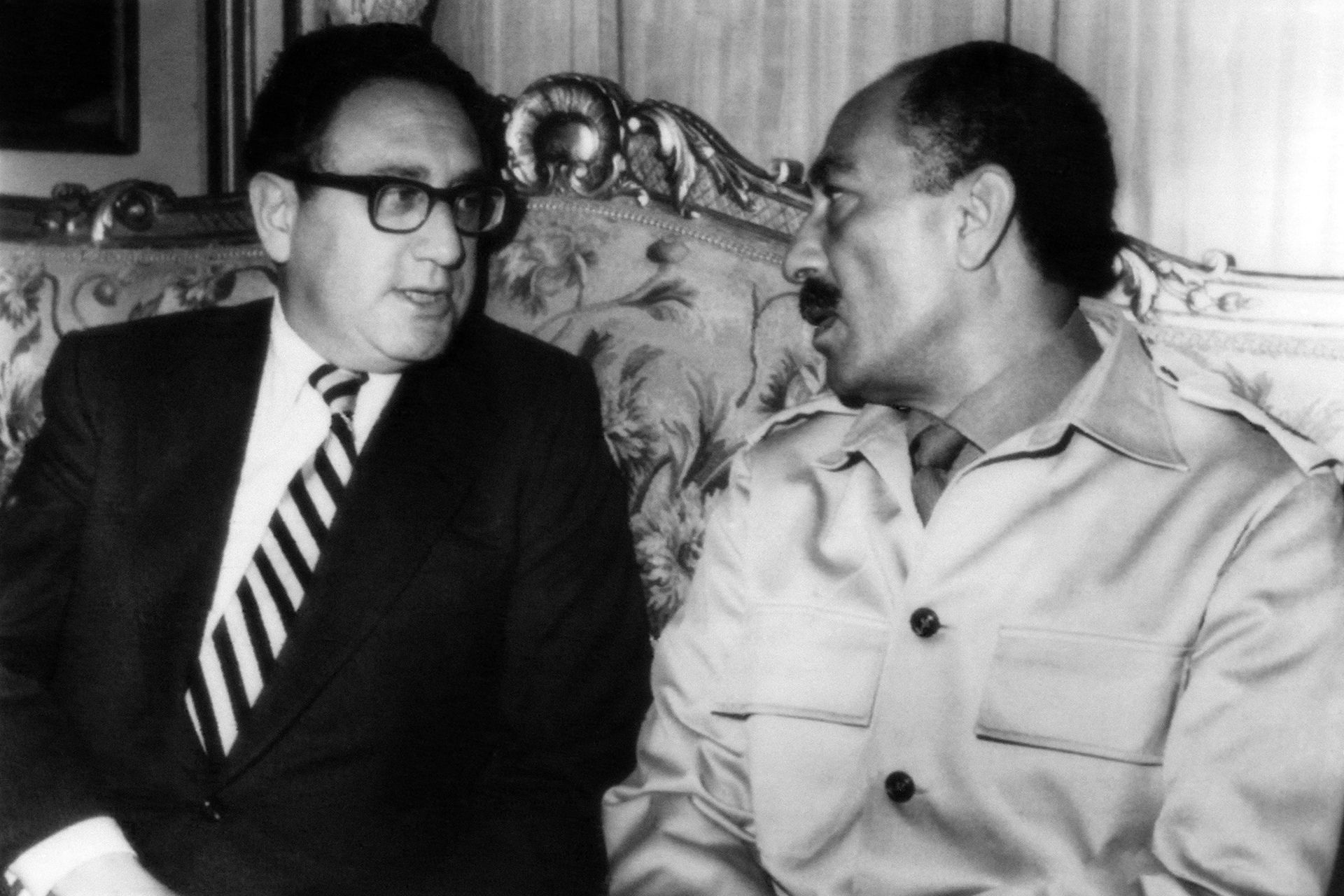5 months separate Henry Kissinger from his 100th year, as he was born on May 27, 1923 in Bavaria to a family of German Jews.
It seems that Kissinger has not yet lost his ability to focus, think strategically, and seek practical solutions to difficult issues, which distinguishes him from other foreign policy theorists and practitioners of his generation and subsequent generations of rulers and bureaucrats.
Opinions about Kissinger differ widely and sharply.
As some see him as a genius, he strongly defended what he considered "Kisingerian realism" through a true vision of the event, far from emotions and human or moral dimensions.
By contrast, many resented him for ignoring the death, destruction, and devastation that so often resulted from Kissinger's realism.
The late British thinker Christopher Hitchens once called Henry Kissinger "a colossal liar with a remarkable memory."
This judgment may be accurate in many of the historical events in which he participated or contributed to their occurrence or termination, but the matter is different when Kissinger talks about leaders and leaders he knew and got close to, and exchanged conversation with them not only for hours or days, but for weeks and years in some cases.
Kissinger is disturbed by the scarcity of heavyweight leaders in the world of contemporary international politics.
From here came his latest book, "Leadership: Six Studies in Global Strategy," which includes a presentation of his relations and his reading of 6 leaders: Konrad Adenauer in Germany, Charles de Gaulle in France, Richard Nixon in America, Anwar Sadat in Egypt, Margaret Thatcher in Britain, and Lee Kuan Yu in Singapore) whom he counts have succeeded in achieving great things inside or outside their countries.
Kissinger fears that the exceptional circumstances that enabled these leaders to emerge will fade away.
Kissinger said, "We thought Sadat was stupid and could do nothing of value, and he was not."
He added, "It is the combination of personality and circumstance that makes history, and I had the good fortune to meet the six leaders at the height of their influence."
The book notes that the six leaders Kissinger addressed were all born outside the social elite, and were middle-class children from ordinary families. This background gave them the ability to understand how the citizens of their countries see the world.
These leaders were selected in educational institutions based largely on merit, and received a disciplined and demanding education that prepared them psychologically, intellectually and culturally to function effectively later in the world of politics.
Kissinger believes that humanity's need for great leadership now has become more urgent than ever. Rather, he believes that the absence of distinguished leaders is what prompted humanity's turmoil and crisis.
He fears that civilization will be endangered as a result.
Great leaders must bridge the gap between public opinion in their countries and the compromises that cannot be separated from international diplomacy.
They must see the world clearly enough to understand what is possible and sustainable, and they must be able to persuade their fellow citizens to accept the often disappointing results.
Former Egyptian President Anwar Sadat comes among those leaders about whom Kissinger spoke, dealt and wrote a lot. Kissinger saw that the 1967 war shaped Sadat's political thinking, and made him see early that there was no hope of relying on the Soviet Union to support the Egyptian and Arab side in the Middle East conflict.
Kissinger believes that Sadat moved outside the box in what was customary in the Arab collective mind towards the historical conflict with Israel.
During the post-1973 war negotiations, Kissinger tried to preserve the safety and security of the Jewish state, at a time when Israeli leaders considered his presence in the American decision-making circle to protect their interests because he was Jewish. As for Sadat, he believed that Kissinger's Judaism could push Israel to accept major concessions.
Kissinger conducted long and arduous negotiations with the former President of Egypt, and eventually succeeded in pushing Sadat to accept solutions that he initially hesitated to accept.
This prompted Martin Indyk (the seasoned politician and former official in several US administrations for the files of the peace process) to call Kissinger the title "Master of the Game", which is the title of his important book on the Kissinger administration, the Arab-Israeli peace negotiations before, during and after the 1973 war.
Indeed, Kissinger succeeded in reaching 3 agreements: two between Egypt and Israel, and one between Israel and Syria.
Indyk's book details what Kissinger considered a maneuver and a serious initiative undertaken by President Sadat, and Washington did not pay attention to it until late. He sent his national security advisor, Hafez Ismail, to Washington in February 1973 carrying a peace initiative.
Kissinger met Ismail and listened to him, and delayed the response without seriousness or haste, despite Ismail's confirmation of that.
Kissinger presented the idea to Nixon, then discussed the matter with the Israeli ambassador to Washington, Isaac Peres, who downplayed its importance and rejected it, as did Golda Meir, who destroyed the initiative and said, "Forget it."
Kissinger pledged to return to the initiative after the Israeli elections that were scheduled for December 1973, but Sadat went to war in October of the same year.
Before that, the Egyptian president surprised the world with the decision to expel 20,000 Soviet experts from Egypt on July 18, 1972, and the American reaction was sufficient evidence to recognize the importance and seriousness of this step. Kissinger said, "If President Sadat phoned Washington and asked for anything before He expelled the experts from Egypt, he would have gotten what he wanted, except that he offered us this great work for free.
However, the book indicates that Sadat relied on different calculations, and saw that getting rid of the experts would free him from the burden of the Soviet Union approving any future military action.
Kissinger said, "We thought that Sadat was stupid, and that he could do nothing of value, and he was not."

